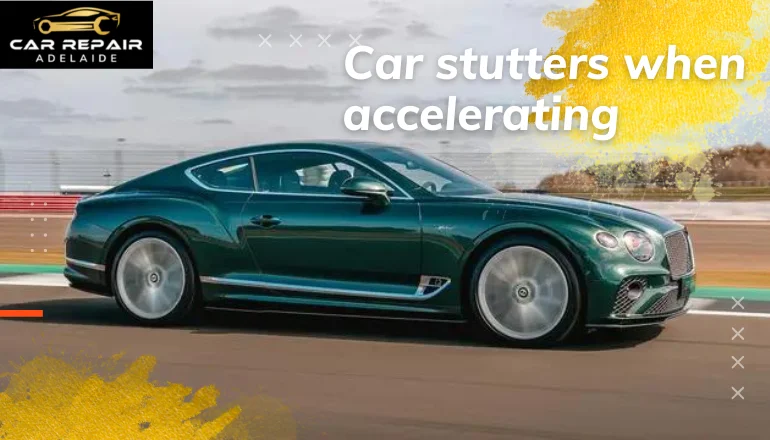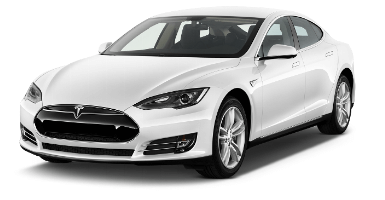
Understand a situation where you are about to travel to a spot with your friends on a vacation. Suddenly, your vehicle starts stuttering and start making noise. The stuttering noise indicates that there is a problem in the car.
When a vehicle drives before you press the accelerator, it indicates a possible problem, and jerks, judders, and stutters all indicate that there is a problem with your vehicle. An automobile might stutter in the middle of a drive or from the start.
In some circumstances, the automobile will continue to operate, but in others, it will shut down altogether. We will discuss why a car stutters upon starting and how to avoid such situations. A few factors might be causing your automobile to stutter while accelerating. One explanation is that something is impeding the airflow beneath the automobile, causing the engine to suffer to get fast enough. Another option is that the engine is misfiring, causing the vehicle to hesitate & stutter when accelerating. If you’re having this problem, you should take your automobile for a checkup to discover whether there’s anything incorrect with it. While expert drivers might not even notice this issue, many novice drivers observe this as they try to speed and their automobile begins to stutter.
If the automobile is unable to stay up with traffic and needs to make a sudden turn, this can be a significant problem. There are various reasons why automobiles stutter when accelerating. A worn transmission may cause the vehicle to lose power when it switches gears and worn brake pads, as well as rotors, can also result in diminished stopping power. If you’re having trouble with your car’s capability to accelerate smoothly on a frequent basis, you should get it checked out by a car repair shop professional.
If your car stutters as you accelerate, you may not have an ignition switch light on, yet your vehicle jerks or your engine stalls. There might be a variety of causes for this, some of which are simple to address. Others may require the assistance of a professional technician to repair their stuttering vehicle. We’ve highlighted some of the most common reasons why your car shutters when accelerating. However, you can always contact us or visit the service facility for assistance!
This is not an issue; it is simply a side effect of running a stick-shift car. If you’re still learning, you may experience jerking when you change through each gear. However, it’s usually with manual transmissions, so you’ll enjoy a smoother ride as you grow acquainted with the settings.
The objective of the spark plugs is to ignite the combined gasoline and air kept inside the engine, leading to combustion that propels the pistons of your automobile. So, if your automobile begins to stutter, there’s a strong probability it has a spark plug problem. These parts are not uncommon to burn out, and a damaged spark plug may cause the engine to fail and shake as you accelerate, as well as make your engine louder than usual.
The objective of fuel injectors is to deliver a steady stream of gas to your engine’s cylinders. If your injectors become too filthy, your engine will not receive enough gasoline and will not function properly, frequently misfiring during acceleration.
The optimum air-fuel combination is the dream partnership that keeps your automobile operating smoothly. Unfortunately, if your car’s air filter becomes too blocked with dust particles, debris will begin to enter the engine and influence how smoothly it operates. You can quickly check your filter, and if it has to be replaced, it’s a pretty inexpensive remedy. You may also use a replaceable filter that simply has to be cleaned.
The distributor cap in your automobile is an important component of the ignition system. When moisture accumulates, it prevents an ignition coil from transmitting electricity, causing the automobile to jolt. This is common in Ottawa’s chilly, snowy climate! Fortunately, this does not need to be replaced. All that remains is for the moisture to evaporate. You may avoid this problem by using a thermal cover, or by storing your automobile in an indoor garage.
You’ve probably observed that your automobile jerking as you accelerate is always related to a lack of fuel. A malfunctioning fuel pump means that the proper quantity of gasoline isn’t going into the engine since the fuel pump just can’t keep up with any of what your engine requires or it may not operate at all. The cost of repairing this problem will vary depending on the type of your car, so it’s advisable to acquire a price for parts and labor from a reputable repair shop.
Another source of jerking while your car’s gear shifts is a faulty transmission control module. If your automobile jerks when it switches gears, you should inspect the control module. Because the transmission central controller regulates shifting at your speed, you may suffer shifting delays, causing your car to jerk.
In certain situations, a driver can continue to operate while experiencing jerks. However, if this problem is ignored for an extended period of time, such signs can lead to transmission damage and costly repair. That is why, in order to avoid unintended consequences, this issue should be addressed as soon as possible. The major goal here is to identify the source of the automatic transmission’s kicks and jerks. It can be difficult since kicks and jerks might appear at many phases of gear shifting: while moving a shifting lever, shifting between particular ratios, or starting driving without letting the transmission warm up. Proper diagnostics, as well as certain indirect indicators, can aid in determining the cause of the problem.
Kicks as well as jerks in automatic gearboxes are frequently caused by transmission fluid problems (ATF). This fluid is used to lubricate transmission hard components as well as to operate the transmission. By travelling under pressure via valve body channels, the fluid delivers the engine’s torque to the wheels and participates in gear engagement.
The following are the most common causes of jerks as well as kicks in automatic transmissions:
A car’s engine is one of its most important components. It contributes to the conversion of chemical energy from fuel into action, allowing your car to move freely. In proper functioning order, your automobile engine should provide you with a smooth & noiseless ride. When you experience the opposite, it signifies your automobile needs your attention. Are you now having stutters in your automobile, particularly when driving at low rpm?
If so, you should be aware that this is among the few symptoms that your automobile is in need of assistance with. To fix the stuttering automobile problem, you must first identify what is causing your engine to under-perform. Or an Auto Mechanic service can help you to identify that issues.
An acceleration issue is generally caused by a lack of fuel, gas, and spark even during the combustion process. Some of the most frequent reason for automobile stuttering is worn-out ignition plugs or even the electrical wires that connect to them.
If your car’s engine stutters when accelerating at lower speeds, the problem may be with the fuel system, which includes the fuel filter, pumps, and injectors. Furthermore, the issue might be caused by the ignition system or sensors such as the manifold absolute pressure sensor, mass airflow sensor, or throttle position sensor. A stuttering automobile problem is a typical problem that can occur when accelerating at low or high rpm. The rest of this blog will explain why your car stutters, especially when you accelerate at low rpm.
A defective fuel pump may continue to obstruct the appropriate delivery of gasoline to a vehicle’s engine via the fuel system unless it is replaced. The same case may be with a defective fuel filter. As a result, you should replace the components.
Cleaning dirty fuel injectors in a car with authorized injector cleaners can eliminate obstructions that impede the appropriate power supply. However, significant obstructions on the injector will necessitate a new component replacement. So, get a professional vehicle technician for the work.
Bad spark plugs are useless since they continue to cause engine misfires, jerking, stalling, and other problems. So it’s advisable to replace the defective spark plugs with fresh ones by visiting a nearby car engine service centre.
If your catalytic converter is clogged, apply a specified catalytic converter cleaner to remove the obstructions. In the case of significant obstructions in the catalytic power converter, you may require a new replacement.
Conclusion
When you speed, your automobile may stutter for a variety of reasons. Overworking your engine by accelerating excessively rapidly is the most prevalent reason. This puts strain on the engine’s components, which might eventually lead to the failure of the engine. Tire wear as well as toothed tires, as well as entering a bend too quickly, or braking too hard, can all cause problems. If you discover yourself in one of these scenarios, it is critical that you maintain your calm and do not panic. The greatest part to accomplish is to allow the automobile to slow down without pressing the accelerator. If you must brake, do it softly and just with enough force to slow the automobile down.
Finally, don’t worry if your automobile shakes when accelerating uphill. This article has discussed some of the key sources of the problem as well as their remedies. Please take the time to identify the specific problem and implement the recommended remedy. If you are unsure of your ability to precisely locate the problem, contact a professional car technician to diagnose and repair it.
Read Also: Car Makes A Grinding Noise When Starting
Fill out the contact form and we will call you as soon as possible discuss events, membership or any general enquiries.
